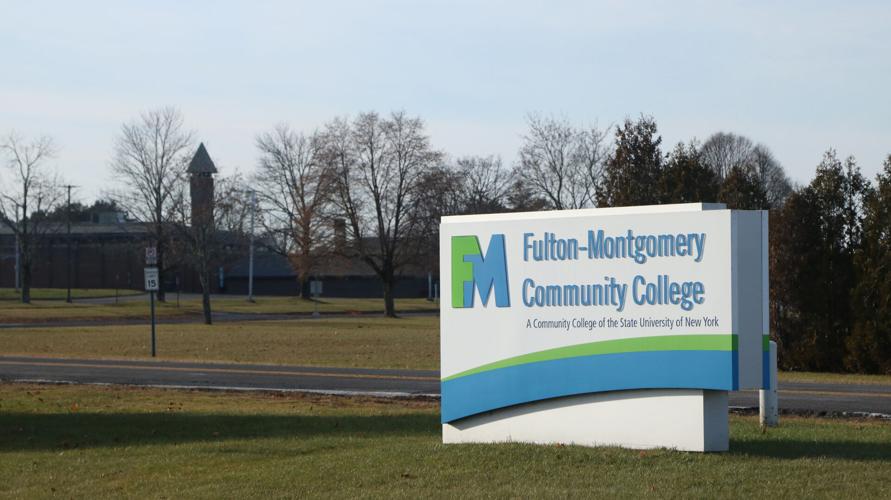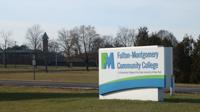TOWN OF MOHAWK — New data shows that SUNY Fulton-Montgomery added $53.2 million to the region over a 12-month-span.
A freshly released report compiled by contractor Lightcast details FMCC’s contributions to workforce numbers, tax revenue and economic output within the 2021-21 academic year.
The report comes in the fourth week of state budget negotiations while community colleges continue to face meager enrollment gains. The timing of the release was intentional, FMCC President Gregory Truckenmiller confirmed.
“We want to make sure that everyone is keenly aware of the economic impact and the value that community colleges provide to the local region and to New York State in general,” Truckenmiller said.
Here are some of the data points from Lightcast:
- College operations added $15.2 million to the regional economy.
- Region alumni grossed $36.5 million combined.
- Student spending accounted for $1.3 million in additional income.
- FMCC contributed to 1.2% of the region’s gross regional product.
- The annual return rate for taxpayers is 0.6%.
- One out of every 63 jobs in the college service area is supported by FMCC students.
The study began in September of 2023. Lightcast sourced data from two years based on its wide availability, tapping a blend of college financial documents, federal government statistics and surveys.
Much of the information tabulated by the contractor still holds up, notwithstanding the economic impact of capital investments, Truckenmiller said. In 2021-22, construction resulted in four jobs supported within the service area.
“We were just doing some small health safety stuff at that time, so had that been done with later data, it would have produced a larger impact in terms of regional jobs,” the college president said.
Not in more than a decade has FMCC pursued an economic impact report.
“We felt it was time given the climate, some of the news stories that you've seen, about attitudes toward higher education, fewer people going to college and diminished public support for public education,” Truckenmiller said.
Between fall of 2016 and fall of 2023, campus numbers have dropped from 216,277 to 162,228 system-wide and 2,634 to 1,761 at FMCC. The campus headcount has mostly plateaued within the last two years, accounting for a single-percentage point annual bump (4.6%) and drop (-2.8%). It’s gone up again slightly in the spring.
A number of factors, including negative attitudes towards higher education, COVID-19 and low birth rate numbers, have been linked to enrollment challenges within the last decade.
FMCC was recently asked to provide additional enrollment data to their accreditor, the Middle States Commission. College spokesperson Daniel Fogarty said that doesn’t mean that FMCC’s accreditation is in jeopardy.
“They basically just get the additional information, it satisfies their questions and they just move on,” Fogarty said.
Overall, FMCC has faced some challenges as a result of lower-than-desired enrollment numbers. Wading through rough fiscal currents, FMCC has cut its budget by $1 million since the 2021-22 academic year.
The college opted to request $200,000 from the Fulton County Board of Supervisors and Montgomery County Legislature — the first local contribution increase since 2018. School officials are anticipated to ask for a $100,000 increase within the next two years.
Gov. Kathy Hochul this year has requested to keep community college funding at full 2022 levels in the upcoming budget.
“While we're grateful that she has maintained the floor for community college funding as the chancellor puts it, helped us avoid an $84 million loss as a sector — it’s a sector that needs to be invested in,” Truckenmiller said. “We're the engine that is particularly nimble and able to respond quickly to workforce needs.”
Assemblymember Robert Smullen, who sits on the higher education committee, expects a “tough” funding fight ahead for community colleges this budget season.
The town of Johnstown Republican, along with the Fulton Montgomery Regional Chamber of Commerce and Fulton County Center for Regional Growth, believes that FMCC’s most recent report makes a compelling case towards the institution’s economic value.
“One thing that really jumped out FMCC was that the average associate's degree [graduate] earned $6,900 more per year compared to someone just straight high school diploma,” Smullen said. That is exactly what young people need to know when they value their time and the money they have to put into getting an associates degree.”















